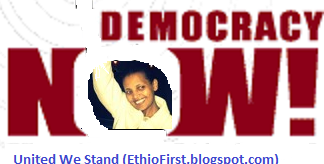It is being disseminated that a certain group of the TPLF and Bereket are trying to purge some veteran members of the TPLF. Purges are not new in the TPLF, but it is a break from the tradition of the TPLF, if a group has really disclosed its intention before taking an irrevocable measure.
One aspect of the tradition of the TPLF, which is devoid of any transparency and accountability was that the perpetrators prepare their intrigues to harm their victims without informing the targeted victims and the rank-and-file-members of the TPLF and purge (as they did to Aregawi and Ghidey in 1985, to Seeye, Gebru Tewelde etc in 2001) or liquidate their victims (Abera Manka, Hagos Haileselassie etc0in 1977/78 and Teklu Hawaz in 1985). In all the cases mentioned, the victims did not get a fair chance to express their opinions and this practice of injustice applies to many others.
To put it in military terminologies, the protagonists behaved as if they had to ambush their victims. They launched surprise attacks against their victims whenever the latter list expected the attacks. Another aspect of the tradition pertains to the fact that the perpetrators used to go over to a pre-emptive attack, whenever they felt insecure and feared being held accountable for crimes or feared losing power. Accusing Kinnjit was for instance a pre-emptive attack. Those who ordered the massacre and those who executed the order after the election should have been accused, but the killer framed the accusation to pre-empt his exposition and the mobilization of the people against him. This also shows that conflict resolutions in the TPLF have always been zero-sum-games. On the surface, the perpetrators seem to achieve their aims with dishonest accusations. In reality, it is the use and threat of physical force (the control of the army) which enables them to implement deceptive measures which they try to sell as sophistication and smartness.
During the armed struggle, they (the perpetrators) used to inform others after the fait accompli to justify their measures and silence any potential expression of any grievances in the case of purges. They kept liquidations secrete with the exception of that of Teklu. With the murders they committed in 1977/78, the perpetrators succeeded in making the none-CC members of the TPLF as apolitical as the weapons the latter carry by destroying mutual trust and instilling a feeling of suspicion and fear amongst the fighters of the TPLF. The evaluations (Gmgemas) are mainly meant to maintain the atmosphere of insecurity by forcing everybody control everybody else reciprocally.
A few individuals in the TPLF have been exploiting the lack of a democratic culture and consciousness amongst the members to maintain their repressive rule. Such individuals are perpetuating the undemocratic culture. In this connection, most members of the TPLF are victims, objects of experiment for tyranny and tools of the oppressors at the same time. The few who are in charge of the TPLF have the key (an organized and armed force) to control Ethiopia. They are controlling almost all key positions in Ethiopia that their dominance is too unjust to be tolerable and sustainable. As this lopsided ethnic relationship is the objective reality, exposing and opposing it should be the duty of any democrat. Objectively exposing the repressive and corrupt practices of the Tigrayan elite is not an attack on the people of Tigray.
But there are also people who generalize. On both sides, some generalize deliberately, others innocently or due to their inability to differentiate. Now, coming back to the alleged split, Sebhat Nega, in an interview with Dawit Solomon of Fnote Democracy (posted on 31 January 2013 in zehabesha) has said part of the truth, in saying that the TPLF has never experienced a split. The whole truth is that there were splits in the leadership, but no splits of the whole organization, because the none-CC-members have neither the right to make decisions nor the right to get information on the issues prior to the decisions. Generally, armed undemocratic organisations (like fascists, Stalinists and religious fanatics), do not split, because the leaders do not inform their members about their differences of opinion and let the members freely discuss as well as take sides on the issues. What the perpetrators do always is take measures on the dissidents and spread lies about them. And this was what the leadership of the TPLF has been doing so far. Sebhat is trying to hide the fact that the TPLF is too undemocratic even to split. The clique which controls the TPLF cannot tolerate any differences of opinion even within itself and that is why it subordinated itself to a single tyrant. Of course, a split would certainly have entailed war, since no independent groups would have tolerated each other. If the Sebhat clique were sincere and had confidence in the correctness of the decisions it arrived at, it would allowed the members of the Front to participate in the process of decision making. Since the clique is used to depriving its own members of their rights, it is depriving all Ethiopians of an alternative and harassing the opposition.
 (Reuters) - A European Union parliamentary delegation urged Ethiopia on Wednesday to release journalists and opposition politicians jailed under an anti-terror law, and revise the legislation that critics say is used to stifle dissent.
(Reuters) - A European Union parliamentary delegation urged Ethiopia on Wednesday to release journalists and opposition politicians jailed under an anti-terror law, and revise the legislation that critics say is used to stifle dissent.